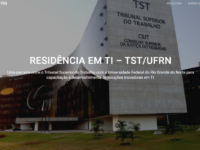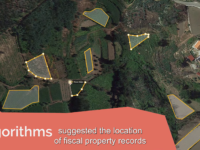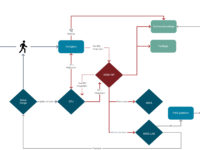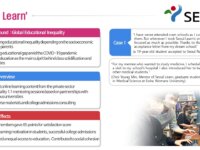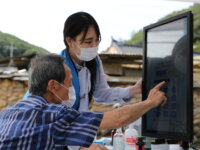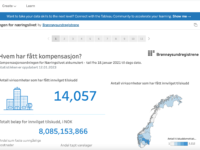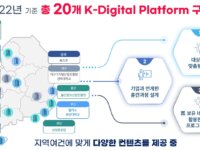The open innovation model was developed in partnership with Federal University of Rio Grande do Norte (Universidade Federal do Rio Grande do Norte) and Superior Court of Labour (Tribunal Superior do Trabalho) to implement a Residency programme in Information Technology. The objectives are: qualification of human resources in the IT area, realisation of applied research and development of innovative IT solutions for the Superior Court of Labour (TST). It proposes a model of innovation in the…
Innovation Tag: Cross-Sector Partnerships
BUPi, is a one-stop shop, developed to integrate different sources of information about property ownership and land management, gathering knowledge on the, until now, unknown land areas and sharing this knowledge with several government agencies in order to create economic and social value for citizens and for the country. BUPi ensures a simple and digital solution that citizens can use to identify and geo-reference their properties, according to the once-only principle.
To help citizens, health professionals and authorities to handle the Covid-19 pandemic, TISK IKT, a set of interconnected digital solutions, was set up by the Norwegian Directorate of Health. Through exchanging health data, it set a national record in cooperation between 9 government agencies and the medical association to innovate new digital solutions at extremely high speed.
'Seoul Learn' is a project that provides equal educational opportunities to the vulnerable population that has difficulties in accessing educational resources due to socioeconomic reasons. Educational inequality in Korea has been identified as the main culprit behind generational poverty. The project offers various educational services via public platforms to prevent education from causing inequalities.
Since its inception in 2020 for the purpose of realizing a digitally inclusive society, the Digital Competency Center Project has been providing digital competency training for citizens to enjoy the benefits of digital technologies and services as their lives and socioeconomic activities are rapidly digitalized. Thanks to the innovation, any person in Korea can visit their local Digital Competency Center for a free, hands-on training programmes to foster skills for using mobile or digital…
To accommodate the growing foreign talent pool in Vilnius and support the city’s economic development, the Lithuanian Government established a unique one-stop-shop style service centre for foreign talent. Specialists representing various important state institutions gather in one place to provide services to foreign talent relocating to Vilnius. This is the first centre of its kind in Lithuania and comes as a great relief for foreigners while improving Lithuania’s image and increasing its…
Aware of the ongoing digital transformation and user needs, HRDKorea (Human Resources Development Service of Korea)partnered with the private sector to leverage industry-leading technology for the creation of the Mobile National Technical Qualification Service. The certificate layout was fully reconfigured to fit the smartphone environment and used blockchain technology to develop a service that now allows users to immediately access their certificates on their mobile phones. The previous model…
The digital compensation scheme was created to support Norwegian businesses to endure the financial consequences of the Covid-19 pandemic. The scheme designed was quick, efficient, and can be relaunched when needed. Checks are done before the disbursement, which minimizes the need for verification afterwards and also prevents misconduct. Applications are approved by an auditor, and then automatically processed and checked against information from a variety of sources and registers. Information…
ANII, in collaboration with the private sector and the support of Uruguay's Ministry of Health, is piloting a novel Open Innovation Initiative (MH2030). Ageing populations and rising numbers of people with multiple chronic diseases are placing an increasing burden on health systems. There is a need for improving healthcare by fostering an innovative environment. Through this new co-creative approach, local entrepreneurs work collaboratively with partnering healthcare institutions to tailor and…
The Korean government recently piloted the K-Digital Platform (KDP) to enhance national digital literacy and foster manpower suitable for digital convergence as digital transformation and low-carbon economy transition accelerated in all areas of the labor market. This is to strengthen the digital capabilities of various consumers, including workers, young job seekers, and the self-employed, and to preemptively and systematically respond to structural changes in future industries.

